Everyone wants furniture that perfectly fits their space and style, yet disappointment often follows when items don't meet expectations. By putting customers at the center of our design process, I aim to bridge this gap and create furniture that truly resonates with people. At Starborn Furniture, your voice isn't just heard; it's the driving force behind our innovation.
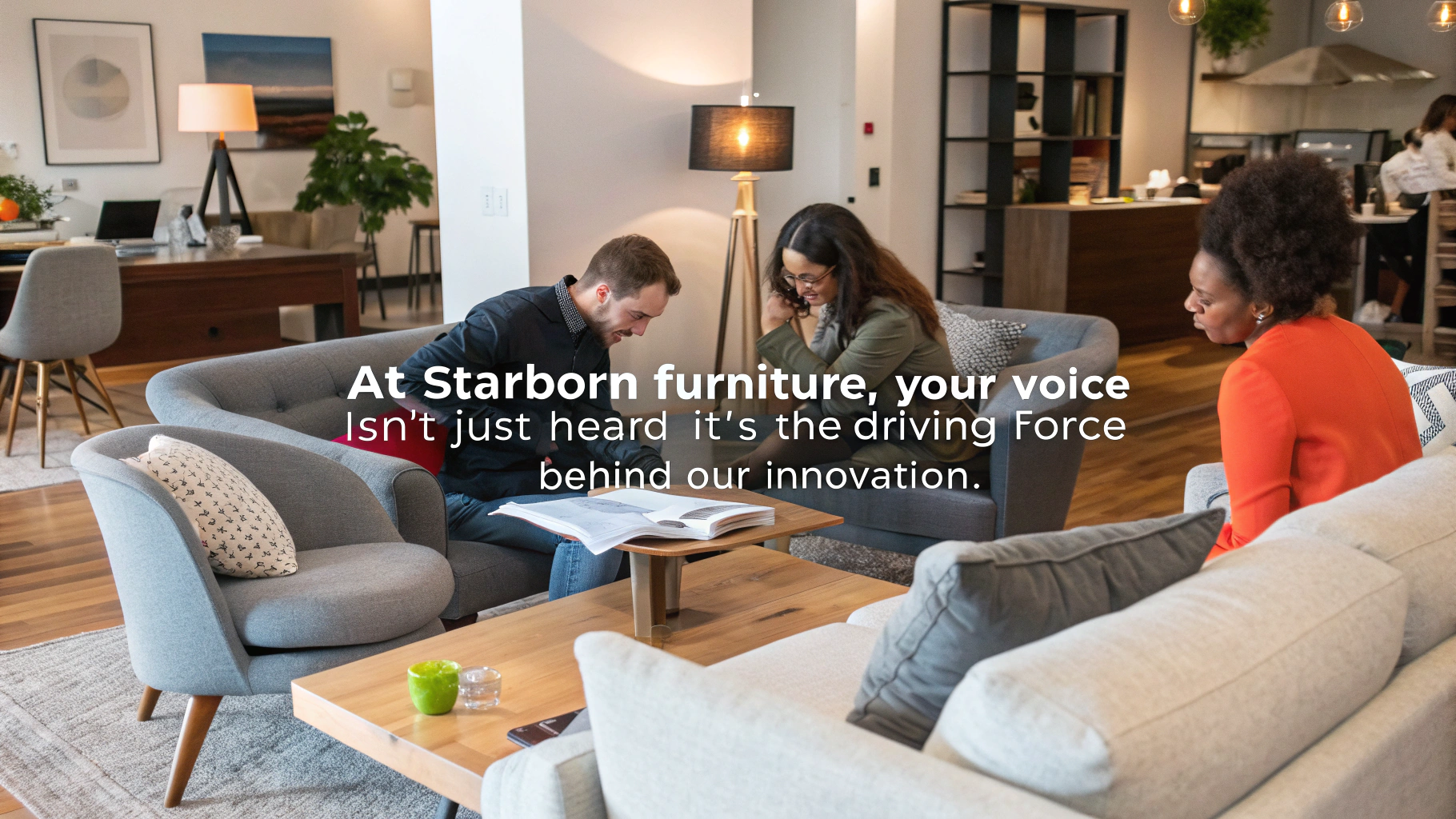
Incorporating customer feedback is essential for my brand, Starborn Furniture, to continuously improve our products and services. By actively engaging with feedback, my company is able to tailor offerings, enhance production efficiency, and develop products that meet customers' evolving needs. This approach fosters strong relationships with retailers, designers, and consumers, ultimately ensuring satisfaction and trust in my brand.
How Does Certification Build Trust?
Trust is foundational in my business. In the EU market, many customers have concerns about furniture quality, often due to past experiences. These worries stem from non-compliant products that failed their expectations. It is important for me to address these concerns and build confidence in my brand.

Typical Customer Pain Points in EU Market
In markets like the UK and Germany, people are wary of buying furniture due to issues with non-compliant products. My goal is to alleviate these concerns by ensuring our products meet quality expectations. Through genuine commitment to compliance, trust can be rebuilt between customers and our brand.
Starborn's Solution: BSCI Certification Endorsement
Our commitment at Starborn Furniture to transparency is demonstrated through BSCI certification1. This ensures that our furniture products comply with rigorous standards, offering peace of mind to customers. By being transparent, we build trust and reinforce the quality promise that comes with every Starborn piece.
Success Story: Retailer Revitalization Through Certification
I witnessed a remarkable transformation with a retailer in Germany who embraced BSCI-certified products from Starborn. This move led to a sales boost of 30%, showcasing the power of certified quality in revitalizing their business and strengthening customer relationships.
How Do We Use Feedback for Product Validation?
Product validation is key to staying relevant in a dynamic market. Retailers face challenges like fluctuating consumer tastes and insufficient product variety. Through feedback, I aim to tailor our offerings to what the market truly desires.

Common Industry Issues: Understanding Varied Customer Needs
In my experience, retailers struggle due to constant shifts in consumer preferences and lacking diverse product options. It can be frustrating when products don't align with customer needs. Addressing this issue requires real insight into what customers really want.
Starborn's Innovative C2M Data Dashboard
At Starborn, we leverage a revolutionary C2M data dashboard to capture real-time customer feedback2. This tool helps us adjust our product offerings to align with market demands, ensuring that we're always ahead and adapting to what consumers truly want.
Case Study: Partnership with Designers for Adapting Trends
Collaboration is at the heart of my approach. We teamed up with French designers to create a product line driven by trend insights. This collaboration led to a 20% increase in quarterly profits, demonstrating the power of aligning designs with market trends.
Enhancing Production Flexibility Through Customer Insights
Adapting production quickly to shifting demand patterns is crucial. Delays in this area can lead to stock mismatches and customer dissatisfaction. I focus on creating flexibility in our production lines by utilizing the insights from customer feedback2.
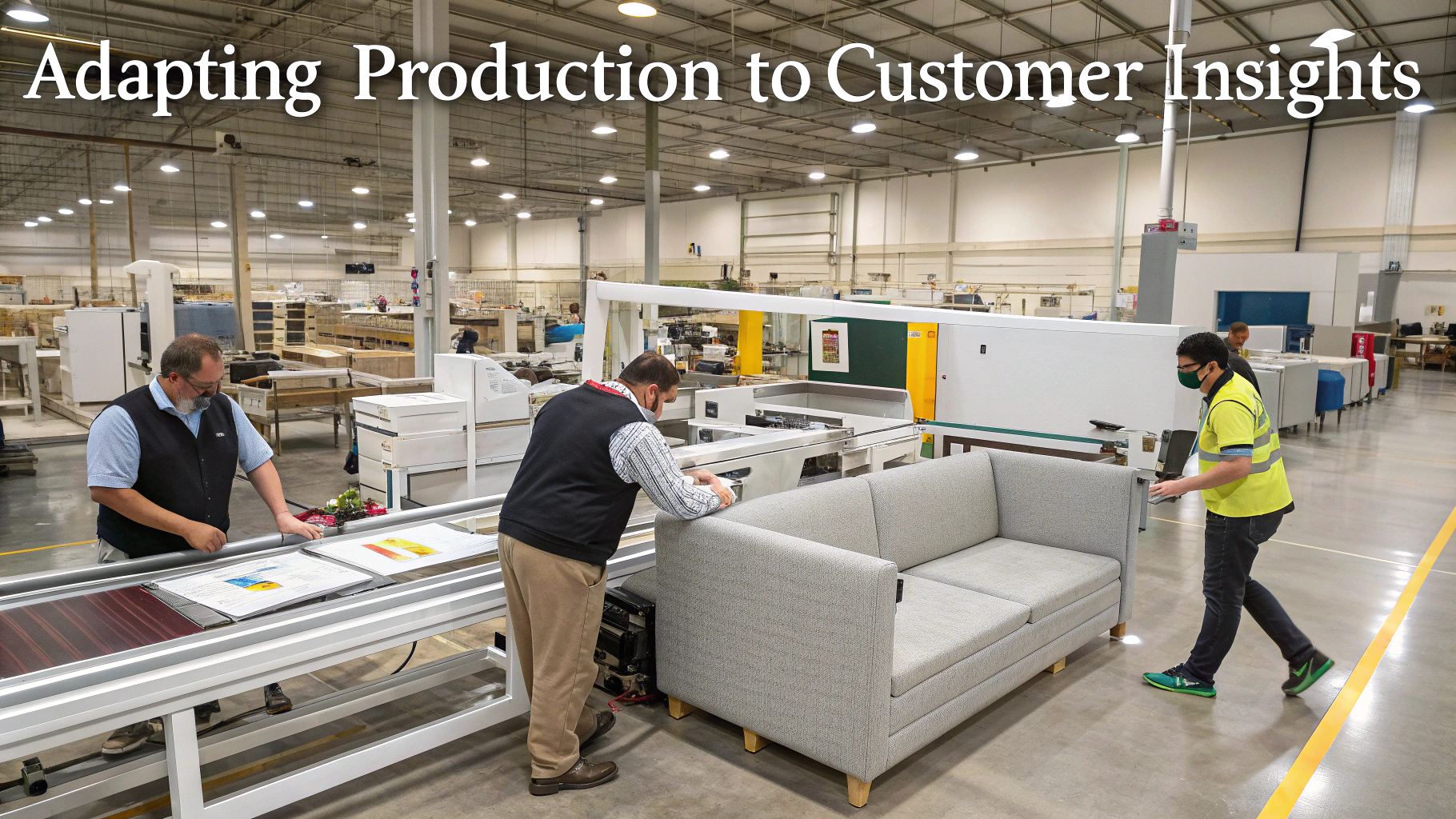
Industry Pain Points: Delays in Production Adaptability
Many production processes fail to adapt swiftly to new demand patterns. This lag results in mismatched inventory and missed opportunities. It is vital for me to address these delays to remain competitive and responsive in the market.
Flexible Production Scheduling at Starborn
Starborn has implemented a flexible scheduling system, enabling us to accommodate variations in demand with up to 2000 unit adjustments monthly. This system, powered by customer insights, ensures that we align production with real-time market needs.
Customer Success: Quick Turnaround Times
A UK retailer benefited substantially from Starborn's responsive production approach. By aligning with market trends and feedback, this retailer improved delivery times by 40%, reducing overstock and better meeting customer expectations.
How Does Feedback Guide Ecological Collaboration?
Sustainability is a growing priority, but implementing eco-friendly practices can be complex for many. By integrating feedback, I aim to simplify this process and foster meaningful ecological collaborations.
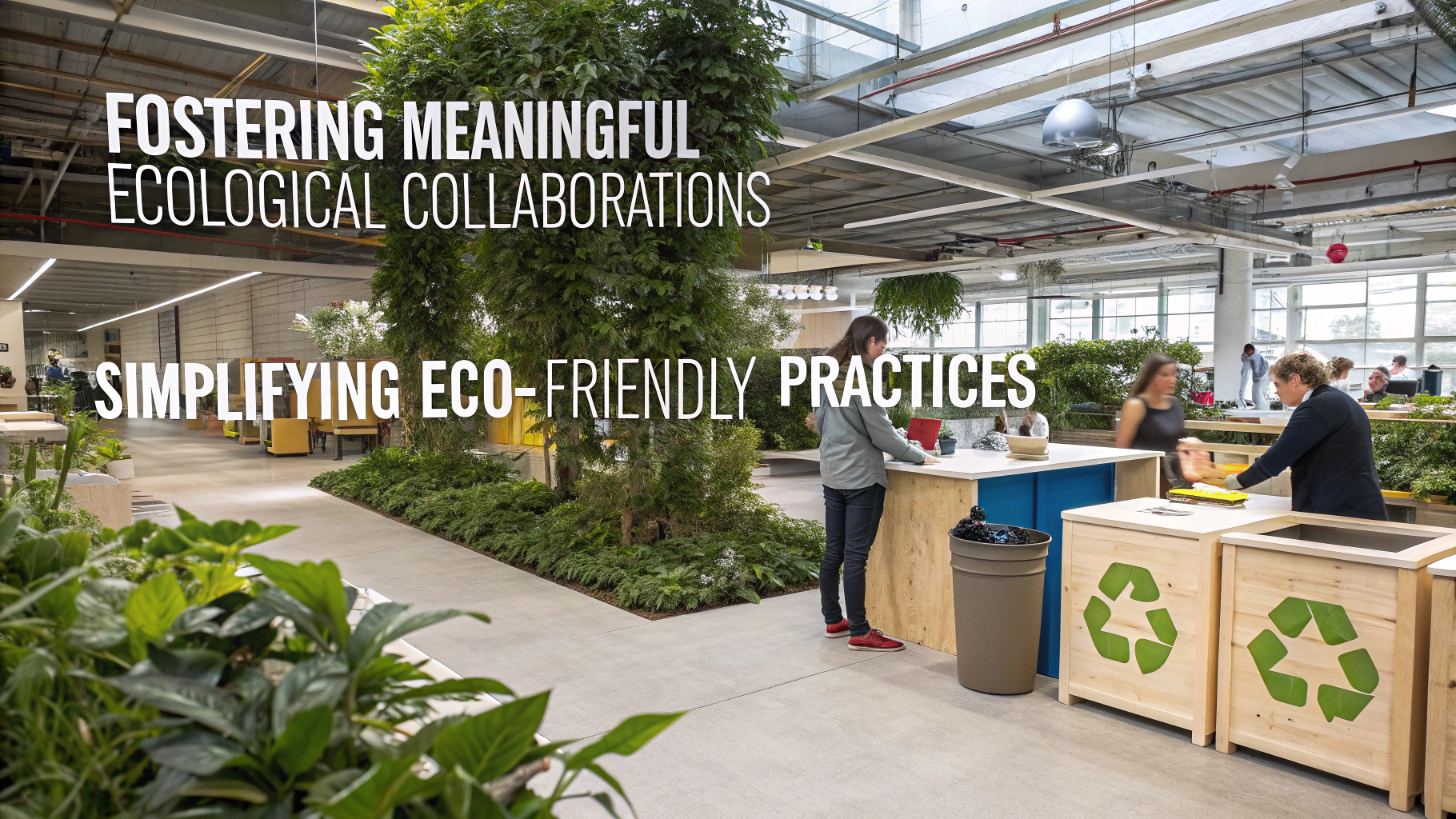
Pain Points: Complexity in Sustainable Practices
Many small retailers find adopting sustainable practices complex and challenging. It can be difficult to navigate standards and integrate sustainability into everyday operations. I recognize these struggles and strive to offer practical solutions.
Starborn's Supply Chain Transparency and Ecological Initiatives
Our platform at Starborn enhances supply chain transparency3, ensuring adherence to sustainability standards like FSC certification. We provide retailers with the tools needed to adopt sustainable practices, making the transition smoother and more transparent.
Small Retailer Empowerment in Dubai
Collaboration with a retailer in Dubai resulted in a successful launch of an eco-friendly product line. Our guidance helped increase their sales by 25%, demonstrating the impact of sustainable practices bolstered by customer-driven feedback.
Leveraging Feedback for Consumer Interaction and Education
Customers often feel disconnected from the product journey, affecting their confidence in purchases. By using feedback to create educational content, I aim to empower consumers and enhance their engagement with our brand.
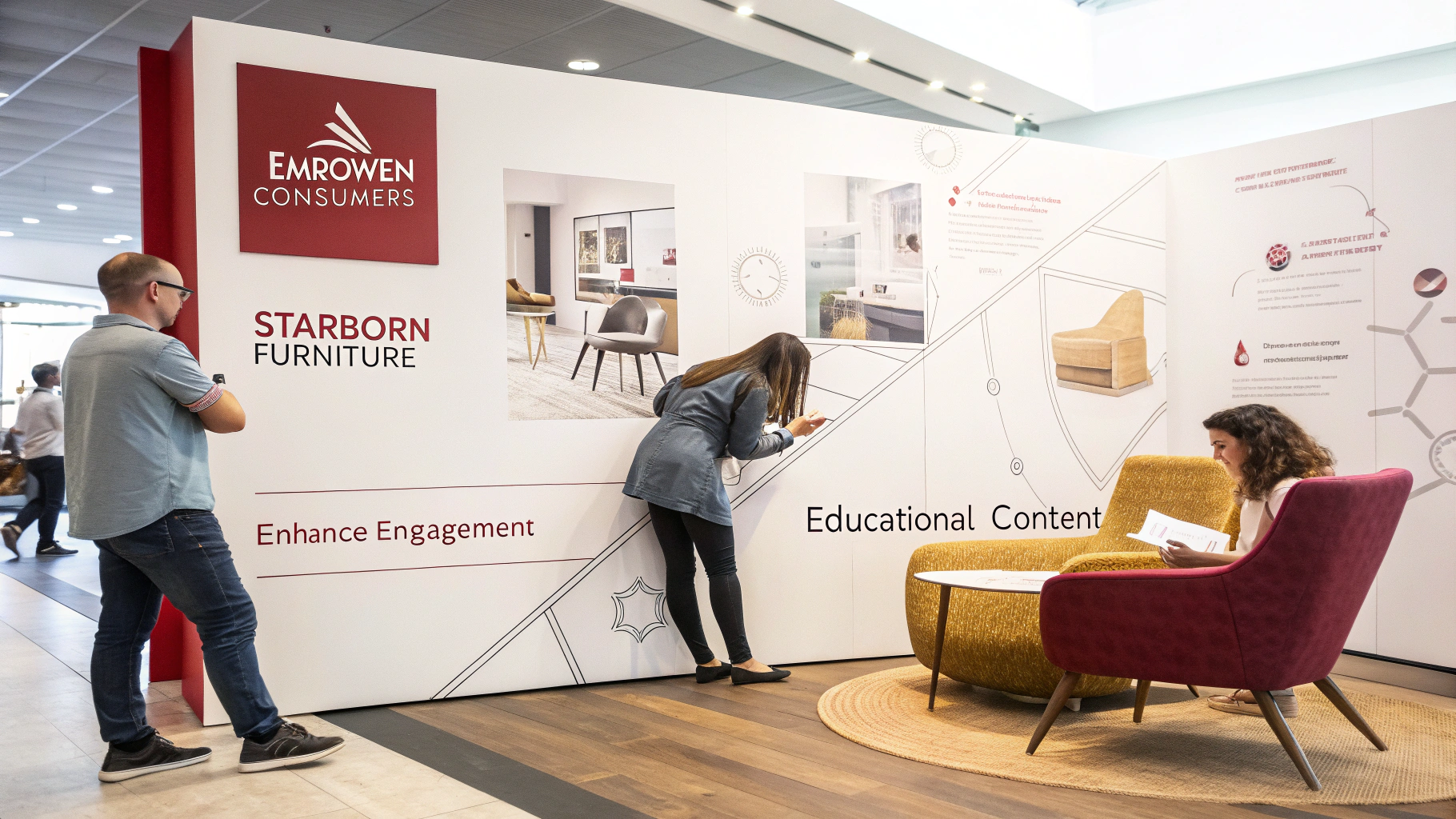
Consumer Pain Points: Lack of Informed Choices
Many shoppers lack sufficient information about products, affecting their purchase confidence. This disconnect prevents them from making informed decisions. I seek to bridge this information gap and enhance the shopping experience.
Educational Engagement Through Content Marketing
At Starborn, we use customer feedback2 to develop educational materials, empowering consumers with deeper insights into our products. This initiative helps bridge the gap between the product journey and consumers, enhancing their confidence and trust in our brand.
Positive Impact: Bolstering Brand Image in France
Our targeted content efforts in France improved consumer engagement significantly, strengthening our brand's trust. These efforts led to a 15% boost in conversion rates, showcasing the impact of informed consumer interaction in building brand value.
Using Feedback to Ensure Long-Term Product Durability
Product durability is critical, yet many customers express dissatisfaction with the longevity of furniture items. Feedback-driven improvements are essential in solving this issue and fostering long-term customer loyalty.
[^2] highlights](https://starborndesign.com/wp-content/uploads/2025/03/1741618388717.6309.webp)
Frustrations with Non-Durable Goods
Customers often encounter furniture that does not endure as expected. This experience can diminish their trust in brands due to frequent product replacements. Addressing these frustrations is crucial for brand loyalty.
Durability-Driven Design Adjustments at Starborn
I utilize customer feedback2 to guide design modifications for enhanced product durability. Our improvements ensure that products meet EN standards and exceed customer expectations, reinforcing the long-term value of Starborn items.
Case Study: Long-Term Value in Germany
In Germany, our feedback-driven design resulted in a remarkable 35% reduction in warranty claims. This achievement underscores the importance of durability-centric design and its positive impact on sustaining retailer-customer relationships.
Customer Feedback as a Catalyst for Innovative Designs
Innovative design ensures cultural and aesthetic relevance. However, capturing these insights requires direct consumer feedback. By doing so, I aim to create designs that resonate deeply with local cultural preferences.
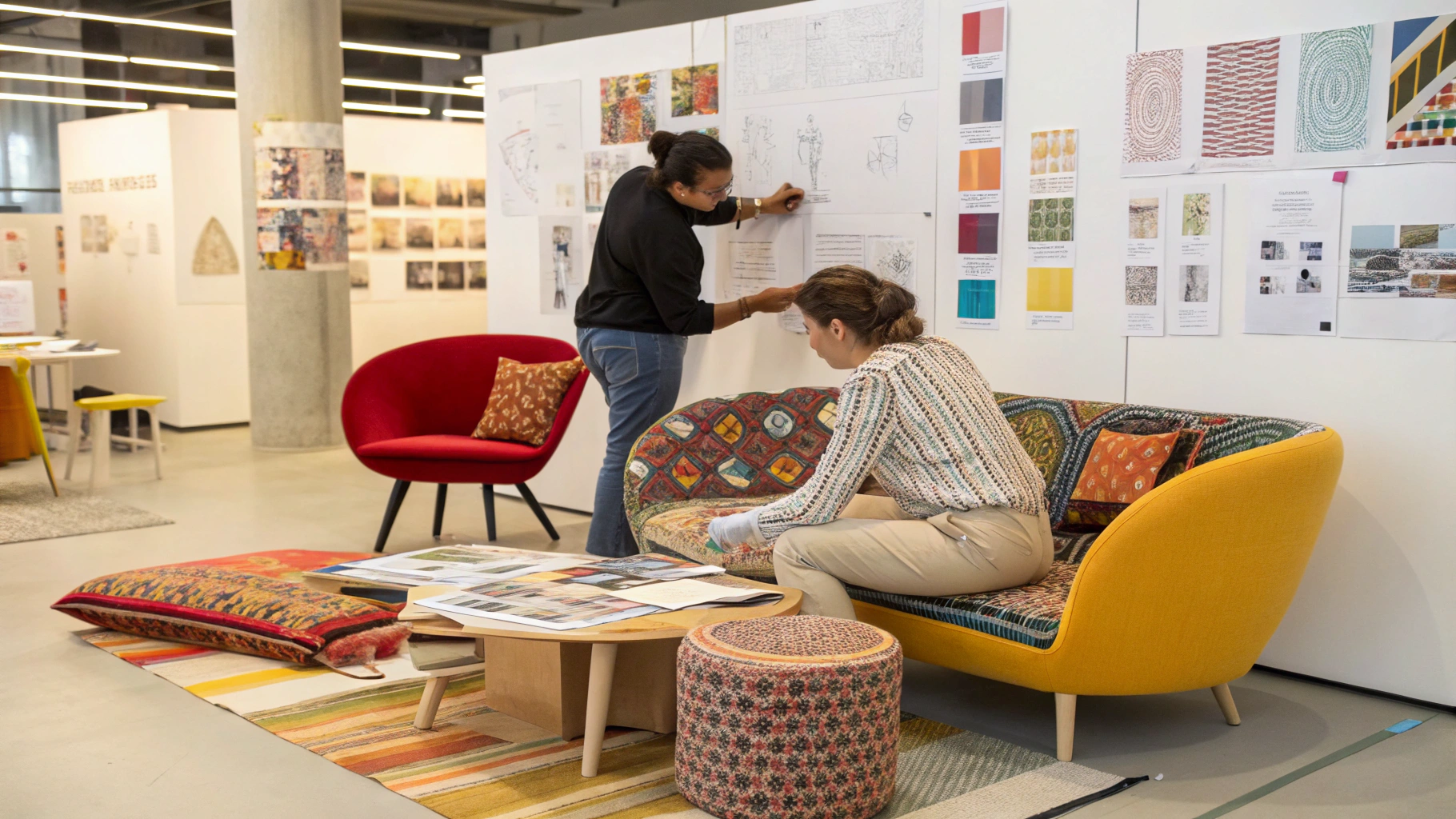
Challenges in Aesthetic and Cultural Relevance
Cultural preferences are often overlooked in furniture design, which can be especially evident in regions like the Middle East. Failing to consider these factors can result in products that lack resonance with local consumers.
Collaborative Design Input Driven by Direct Feedback
Through direct customer insights, I prioritize tailoring designs to reflect local cultural aesthetics. This approach guarantees product relevance and creates furniture that resonates with diverse cultural identities in our target markets.
Breakthrough Success: New Line Introduction in Dubai
By incorporating local feedback, we introduced a new product line in Dubai that increased our market share by 50% within six months. This success highlights the critical role consumer insights play in driving innovative, culturally relevant designs.
Conclusion
Listening to customer feedback helps my brand, Starborn Furniture, refine products and enhance customer satisfaction. By integrating insights into our operations, I create valuable, innovative, and sustainable solutions. This approach builds robust relationships and ensures our brand stands for quality and customer-driven design.
-
Explore the significance of BSCI certification in ensuring product compliance and building customer trust in the furniture industry. ↩
-
Discover how leveraging customer feedback can lead to innovative designs and enhanced product durability, fostering brand loyalty. ↩ ↩ ↩ ↩
-
Learn about the importance of supply chain transparency in promoting sustainability and how it can empower retailers to adopt eco-friendly practices. ↩

